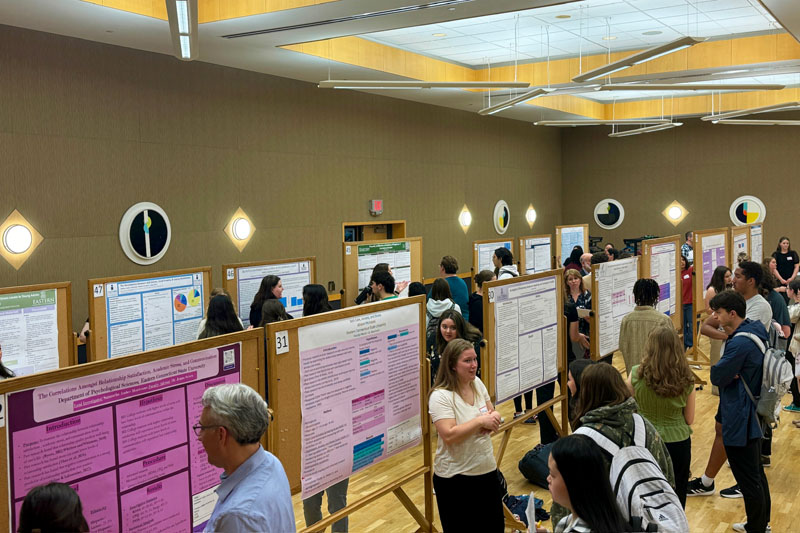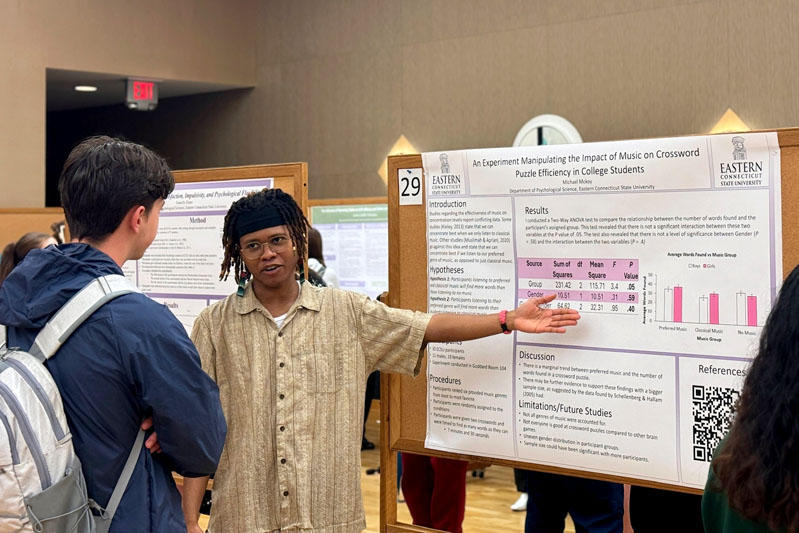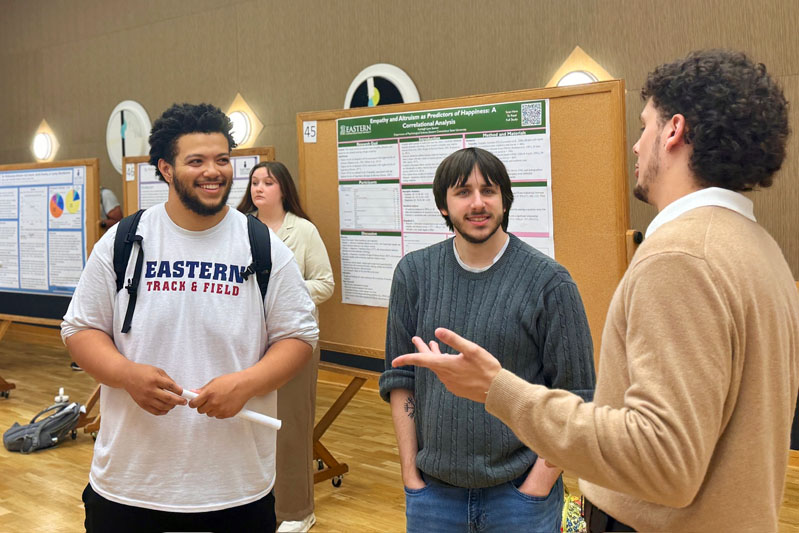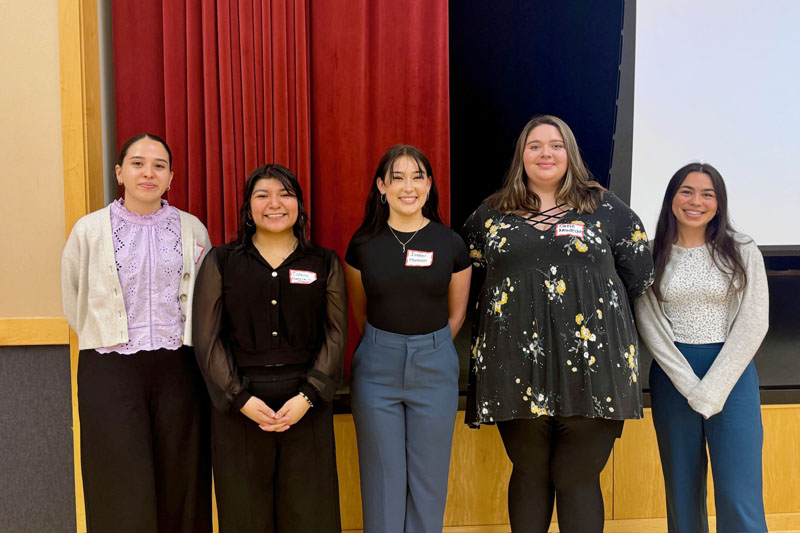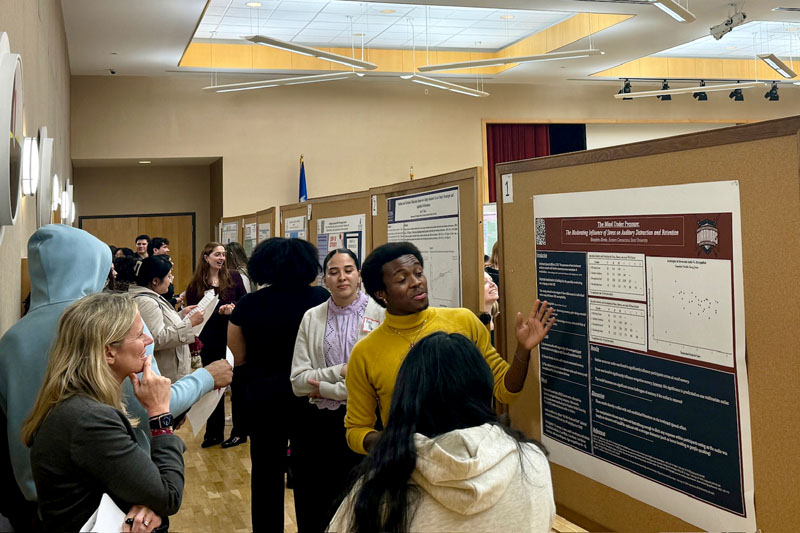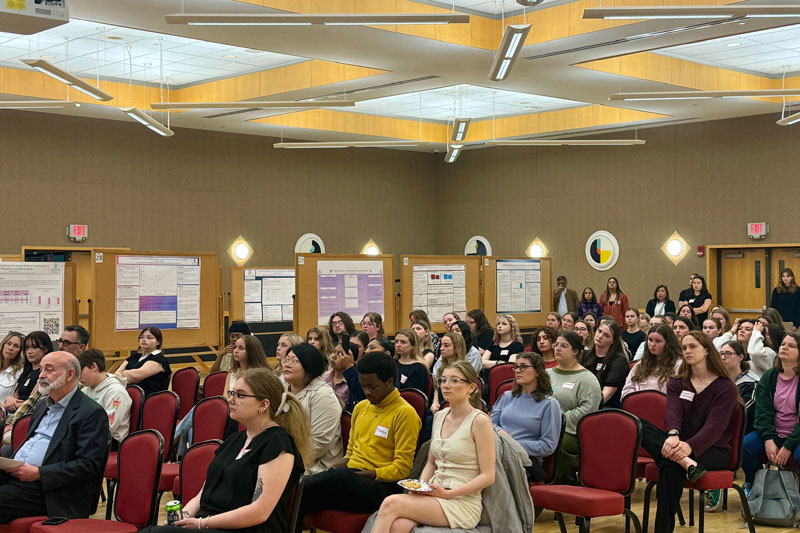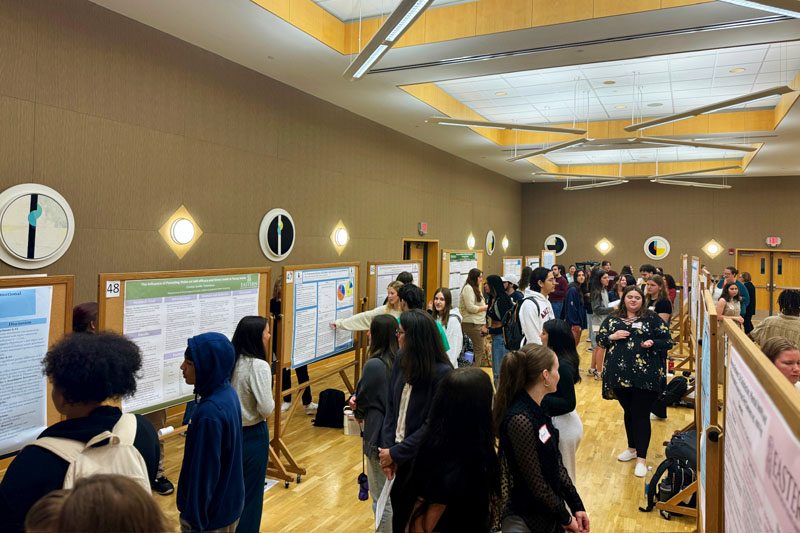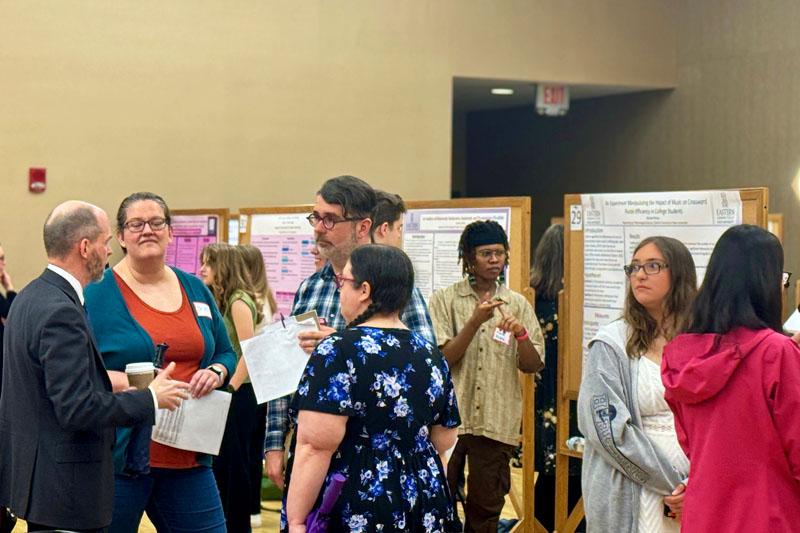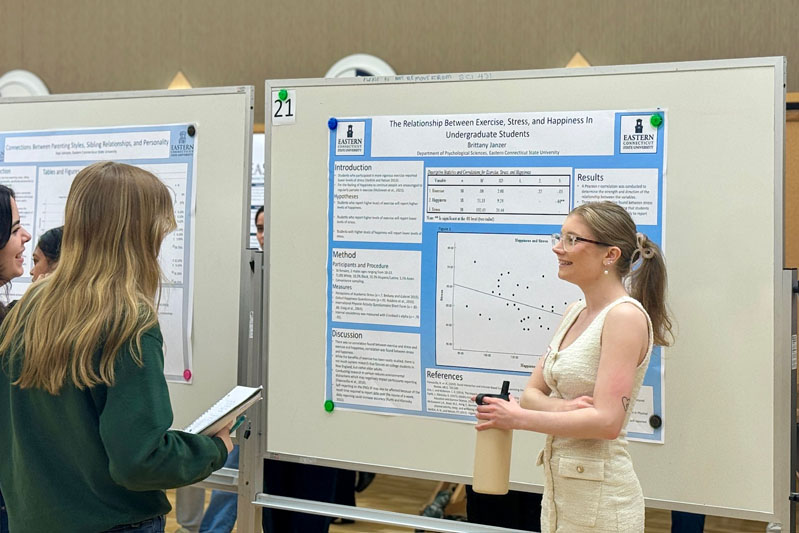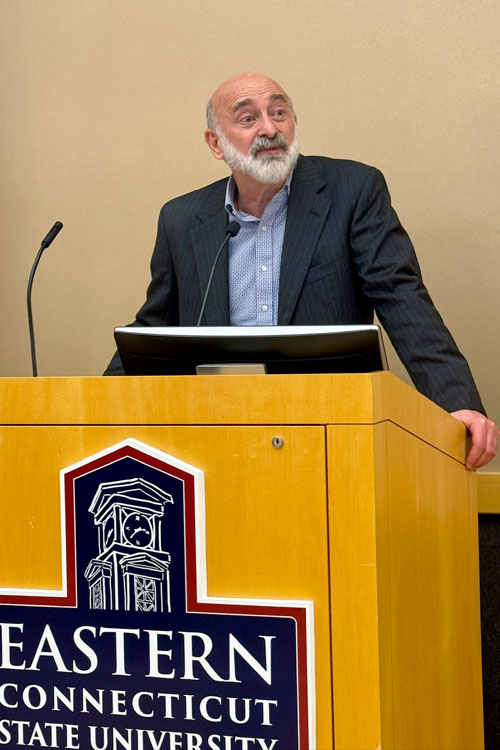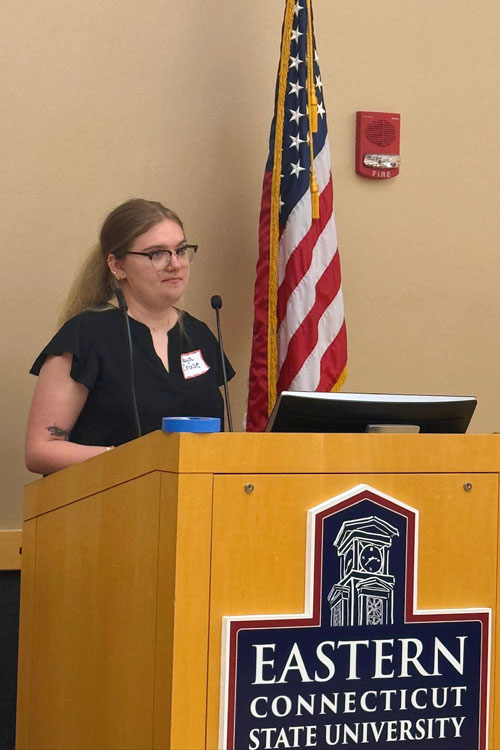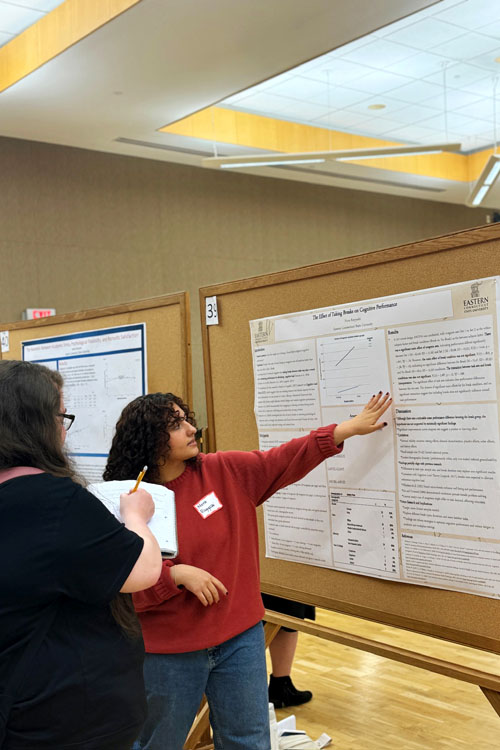- Apply
- Visit
- Request Info
- Give
‘Psychapalooza’ showcases undergraduate research
Written by Kyle Berson '26
Published on May 14, 2025
From examining the impacts of microaggressions to analyzing how videogames influence stress, more than 50 undergraduate psychology students gathered in the Student Center Betty Tipton Room (BTR) on May 5 to display their semester-long research projects at “Psychapalooza.”
The event served as the culminating project for students of “Research Methods II,” who were tasked with conducting an original research study. The event hosted more than 50 students and poster presentations, which nearly filled the BTR.
“Each semester has had a great turnout,” said psychology Professor Peter Bachiochi. He noted that completing this research marks a significant step in students’ journeys to becoming working professionals: “For the students, it’s a great career milestone.”
Poster presentations
Min Silva, a junior education and psychology double major, compared the relationships between stress, anxiety, and microaggressions in white and BIPOC (Black, Indigenous, and People of Color) survey participants. Silva found significant positive correlations between stress and microaggressions with BIPOC-identifying participants, but not among white-identifying participants.
“I expected those results, but I didn’t expect them to be as significant as they were,” said Silva. “It was really eye-opening.”
Kaitlynn Malczynski-Griffin, a junior studying psychology and criminology, explored the roles video games play in education-related stress. She found that playing video games can significantly reduce academic stress.
Diving deeper, she found that recreational video games are more effective in lowering stress levels than educational ones.
Valerie Rosario, a junior psychology and sociology double major, studied the relationships between academic stress, psychological flexibility, and romantic satisfaction.
She found a positive correlation between psychological flexibility and academic stress. “Although students may be more stressed, they could also be taking on more challenges in their lives,” Rosario said.
Students also faced challenges and limitations in their research. Rosario encountered a “ceiling effect:” a disproportionate number of respondents identified their relationship satisfaction to be “extremely satisfied,” rather than answers that could have more accurately measured their feelings.
Oral presentations
In addition to the poster presentations, two students gave oral presentations on their work. Delene Garcia-Coyotl presented her findings on the “Effects of Irritability and Being a Monolingual or Bilingual Student on the Stroop Task,” followed by Raya Cruse’s presentation of her findings on “Fiction Reading Enjoyment, Mental Rotation, and Problem Solving.”
Junior psychology major Hannah Grant, who studied the quality of romantic relationships' association with study habits and student involvement, commented on her experience in “Research Methods II” compared to her previous research methods course.
“‘Research Methods I’ was a bit harder because it was just the start of the topic,” she said. “In ‘Research Methods II,’ I actually started to get the hang of it.”



